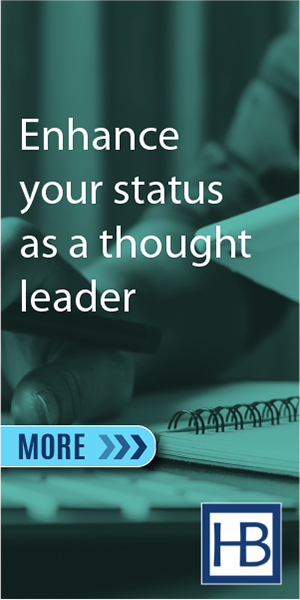Mark Twain once said, “I didn’t have time to write you a short letter, so I wrote you a long one.”
One of the biggest challenges for successful professionals is not coming across as the smartest kid in the class. When asked to do a presentation, author a guest column or write a forward to a colleague’s book, it’s natural to feel you must do a brain dump of everything you know about a topic. But true thought leaders don’t force their audience to drink through a firehose. They know less is more and they choose their words wisely.
True thought leaders give their audience a taste of their knowledge and expertise, without giving away the secret sauce. By doing so, they establish their credibility and share just enough insight to whet the reader’s appetite for a follow-up Zoom call, meeting or consultation to get more information.
I know, more easily said than done.
I hate writing. How do I get faster, more efficient with the written word? Grammarly and other AI writing tools are a start. So are the editing tools built into Office for Windows 10.0 and higher. They’ll definitely help you minimize spelling, grammatical and punctuation errors. You can also experiment with talk-to-text apps. But those tools won’t help you retrain your brain for clearer, more concise thinking.
8 steps for faster, more efficient writing
- Create an outline. You wouldn’t build a house without blueprints, would you? You wouldn’t invest a client’s money without having a plan in place or knowing their risk tolerance, would you? So, why are you trying to write without an outline? I’m not your high school English teacher. Forget the Roman numerals. Here’s all you need in your outline:
- 3 Takeaways you want readers/listeners to get after spending time with your words?
b. Introduce the problem/challenge and why it’s so important today.
c. Explain how you’ll solve the problem/challenge and what the results of that solution will be.
d. Summarize what you’ve just shared with the reader/listener and share a real-world example if possible, to bring the concept to life. Remind them of the Takeaways.
Consider drafting your outline and early drafts in PowerPoint. It forces you to be brief, concise and bullet-point oriented.
- Get rid of distractions. Close your browser windows, email programs, and chat apps. Unplug your computer or even your router. Turn your phone to silent and place it out of view. Even if only for an hour or two at a time, do whatever it takes to nurture a healthy writing habit.
- Use “TK” placeholders. Even if you’ve filled your outline with well-researched points, writing will take you places you never thought you’d go. If you stop your flow to look up a fact or idea, you risk wasting time going down research rabbit holes. Instead, use a placeholder like “TK” (which journalists call “to come”) and replace it when you’re done writing.
4. Don’t Be a Perfectionist. Ernest Hemingway once said: “write drunk, edit sober.” You don’t need to be an alcoholic to produce content to adopt Hemingway’s writing philosophy. Don’t be so tough on yourself. We continuously correct what we’re about to say before we put the words on the page. This is what Hemingway meant by writing drunk. During the drafting phase, just get your main point down on the page. There’s plenty of time for spit and polishing later.
- Find your best time to write. Improving your writing speed and efficiency often comes down to knowing your own biology or psychology. You may be an early riser who writes better and faster in the morning. Maybe you’re a high nooner or you may be a night owl whose mind feels most fluid in the wee hours. Experiment to find out the best time of day for you to write and make “writing appointments” with yourself to shape your content then.
- Walk away. Once you’ve finished your draft, walk away for several hours or several days. Don’t even think about your content piece let alone sneak in any tweaks. Only after walking away can you edit with a fresh set of eyes and ears. What seemed so brilliant in the morning is not ready for prime time when you come back to it. Don’t worry. It’s all part of the process. Your first draft is supposed to suck.
- Read your work out loud. Better yet, dictate it into your smartphone voice recorder and play it back. You may not like what you sound like, but this technique will prevent from straying.
- Learn from the best. Spend a little time this summer re-reading your favorite authors. It doesn’t matter if it’s fiction or non-fiction. Notice how they set the scene, draw you in, and the cadence they use to convey their thoughts. Most have great editors to make them look good, but somewhere along the line, they mastered the craft of writing.
As Nietzche liked to say: “It is my ambition to say in ten sentences what others say in a whole book.”
Conclusion
Conclusion
Being your own critic is tough, but no one knows you better than you. As with any exercise routine, consistency is the key to better writing and you need to get comfortable being a little comfortable. That’s the only way to get better, faster and more confident.
For more, see my recent posts Stop Clearing Your Throat When You Write and Keys to Writing Faster.
Don’t agree? Tell me why.
Here’s how you can support the people of Ukraine
#contentmarketing, #thoughtleadership, #practicemanagement










